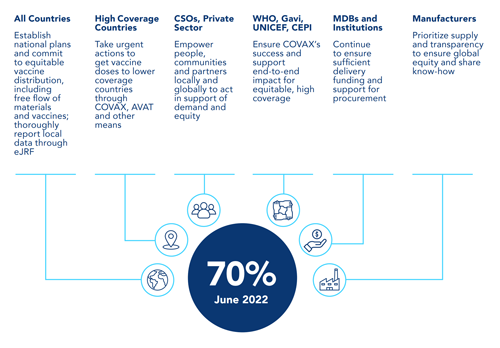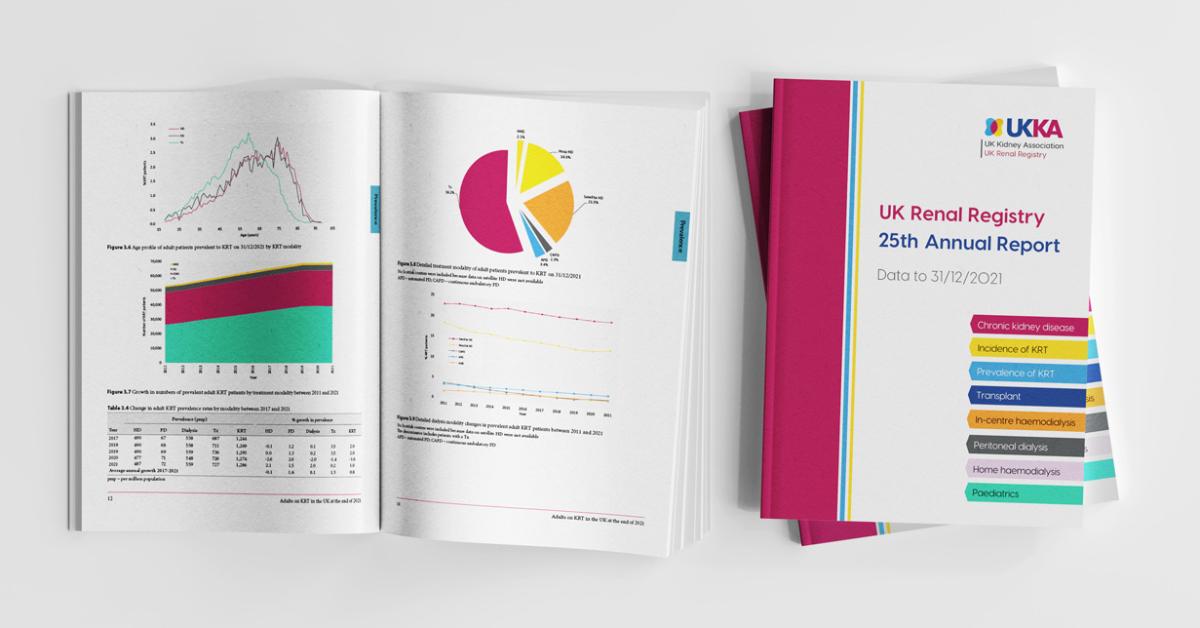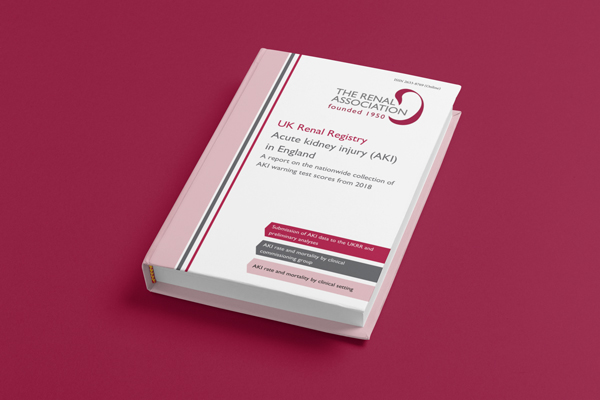The effort which has been given to the procurement and rollout of COVID-19 vaccines in the UK has been extraordinary.
The kidney community would like to see this incredible success built on by committing the United Kingdom to join a unified effort to end the pandemic through global and equitable access to COVID-19 vaccination.
More than 4.7 billion people worldwide have received at least one dose of a COVID-19 vaccine, around 61% percent of the global population. Whilst this is an impressive achievement, there are major inequalities in this provision. Less than 15% of people, including less than one in 10 healthcare workers, in Africa and other low-income countries, have received even a single dose of the vaccine, while 80% have been vaccinated in 22 mostly high-income countries.
Therefore, as the representative organisation for professionals delivering care for people with kidney disease in the UK, we are requesting support for a concerted effort for vaccination in low- and middle-income countries (LMIC).
People with kidney disease are amongst the highest risk groups from COVID-19, and a high proportion of those affected have died during the pandemic. Over 10% of the adult population in the UK and worldwide has chronic kidney disease. As has been said time and time again, we will only beat this pandemic when there is full global vaccination. This will provide the highest protection for all groups, but particularly those at the highest risk, including patients with kidney disease. The aspiration should be to make 2022 the year when vaccinating the world ends the pandemic.
Failure to act now will lead to further SARS-CoV-2 mutations originating from LMIC. The rapid emergence of the Omicron variant is a stark reminder of the ongoing threat posed by the evolution of the COVID-19 pandemic and reinforces the critical need to achieve high levels of immunization coverage in all countries, including in highly vulnerable populations, in a timely manner.
The Independent Allocation of Vaccines Group (IAVG) has issued a set of recommendations to make the allocation of COVID-19 vaccines more equitable and more effective. The Global COVID-19 Vaccination Strategy clearly outlines the step-by-step process needed to achieve the immediate goal of minimizing deaths, severe disease and overall disease burden, and reducing the risk of new variants. The current primary priority use of available vaccines is not consistent with the goals outlined in the Strategy to Achieve Global COVID-19 Vaccination by Mid-2022 in October 2021 via the COVAX program.
We know it is possible to achieve vaccination following the declaration of a “National Mission” by Boris Johnson on 12th December 2021, from the successes in the vaccination programme to UK citizens over the last 18 months.
The UK Government has an opportunity to facilitate equitable access to COVID-19 vaccination including the ability for countries to manufacture vaccines locally via relaxation of patents. This could be achieved through partnership with individual countries or through the WHO-hosted Access to COVID-19 Tools (ACT) Accelerator partnership of leading global health agencies.
This support should include (see below and Figure):
- A dedicated senior-level government minister to engage with the world on ending this pandemic, like that appointed by the Biden administration.
- Vaccine donation: the UK government should donate excess doses of vaccine to the ACT-Accelerator’s vaccine pillar COVAX; accelerate the shipping of doses it has already pledged; and ensure the quality of these donations, by making sure they have no less than 3 months’ shelf-life when arriving in-country. We would advocate that vaccine donations should not be part of the overseas aid budget.
- Infrastructure: support the work of UNICEF, the World Bank and other ACT-A partners to put in place vaccination infrastructure e.g. sufficient freezers for cold-chain supply, and increase development and funding for innovations such as solar-powered fridges.
- Regulate supply and demand: work with global health agencies, pharmaceutical industries, and countries to assess capacity, avoid surges of vaccine delivery, and support the supply chain. Call on manufacturers to be transparent about delivery schedules, and lead by example by swapping our place in the delivery queue with COVAX and countries who have greater needs. Deliveries should include essential components such as cotton wool swabs, syringes, needles, and PPE.
- Support the WHO COVID-19 Access Technology Pool (C-TAP) and mRNA Technology Transfer Hub: the C-TAP is a global one-stop shop for industry developers to share their intellectual property with quality-assured manufacturers, thereby boosting supply. In addition to providing political and financial support, the UK government should strongly encourage companies to share their technological know-how for global benefit
- Financial support: accelerate funding from the World Bank and other multilateral development banks to support purchasing goods and paying healthcare providers in LMICs.
- Remember other diseases: Increase foreign aid funding for other long-term health issues in LMICs e.g. malnutrition, maternal health, TB, HIV, malaria, and neglected tropical diseases (NTD), given the negative impact of COVID-19 on gains made against these issues. The targeted development of mRNA vaccines could ultimately enable these infectious diseases to be eradicated.

Taken from Strategy to Achieve Global Covid-19 Vaccination by mid-2022 Document
Therefore, we urge a unified effort to end the pandemic through global and equitable access to vaccines long term, along with tests, treatments, and PPE.
Ignoring this will lead to the pandemic continuing to cause further suffering and unnecessary deaths. Action could save over 5 million lives while ignoring it will cost could cost the global economy at least $5.3 trillion.
The future of the world and the future generations is in our hands. It is up to one and all to work together to solve the pandemic.



